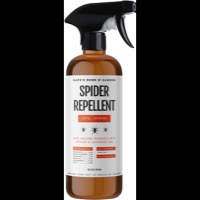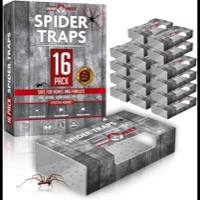Getting Rid of Spiders in Your Home
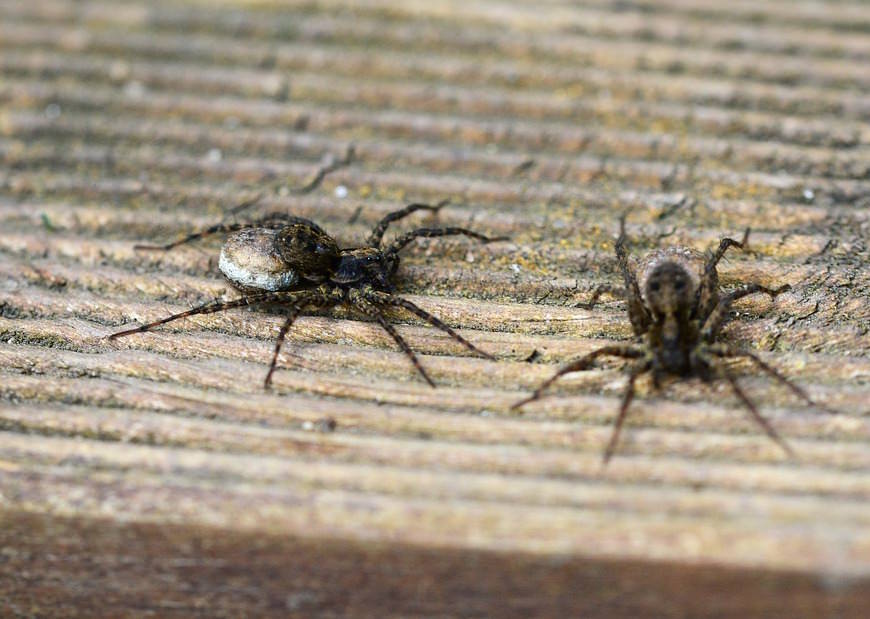
By Jess Simmonds, Expert Reviewer for Repellent Guide
published: May 05, 2018 | updated: Jul 08, 2018
You may already have heard this myth floating around the internet:
You're always within three feet of a spider.
Terrible news if you suffer from arachnophobia, but at least it's a myth, right? Not so much. In fact, this popular spider fact might very well be an understatement. One of the many things that Arachnologists do when studying their eight-legged friends is calculate their population densities – how many spiders live within a certain land area – and those numbers can be quite high. In a paper by researchers Kiss & Samu it was estimated that there are at least three adult wolf spiders living within every square meter in European agroecosystems! And that's just one species of spider.
The good news is that these measurements come from fairly “natural” environments. The population counts decrease rapidly when you start looking in managed turf, golf courses, urban gardens, and other places where humans have left their mark. Spiders are also not that fond of buildings. With the exceptions of a few species (namely the zebra spider, cellar spider, and ceiling spider), most spiders don't really want to come into your home.
But as most of us know from experience, an appearance of one of the three common “home invading” spiders can be more than enough to make you want to rid your house of them. The cellar spider (also known as a 'Daddy longlegs,' but not to be confused with the similar non-spiders known as Harvestmen) is more than capable of causing a panic among the fainthearted.
There are also the odd cases of black widow and brown recluse spiders who find their way into homes. These situations transcend arachnophobia and dislike of creepy-crawlers, as each of these spiders carry venom that's bad news for humans.
Spider Life Cycles
Knowing the breeding and growth cycles of a pest is important to any extermination or control effort. The life cycles of spiders varies between species, but females generally lay eggs within a silken sac that's either carried around or hidden in the spider's web. Tiny spiders hatch within 2-3 weeks. Most spiders live about a year (some species will live up to two seasons) but the females of some species will live up to 20 years.
So how do you handle a spider incursion in your home? The first step is always prevention, so you'll want to address areas of your home that would be alluring to a spider that comes knocking. Like many pests, spiders love clutter. If you've got stacks of old newspapers, storage boxes, or lots of junk stored under your sinks, you may be unintentionally inviting an eight-legged guest.
TIP: De-cluttering isn't just smart when you're avoiding spiders. Getting rid of old boxes and papers will also help keep your home free of rodents, cockroaches, and silverfish.
Once you've managed your clutter, take a look at your housecleaning regimen. How thorough are you with your sweeping, vacuuming, and dusting? These are all important when you're aiming for a pest-free home – and doubly-so when speaking of spiders. Most spiders love building webs. When you take care to remove their webs with your vacuum and duster, you not only prevent your home from looking like a Jaycees haunted house, but you make things very inhospitable for the spider. Be sure to use your vacuum cleaner's extensions to reach the tops of bookshelves and ceiling corners.
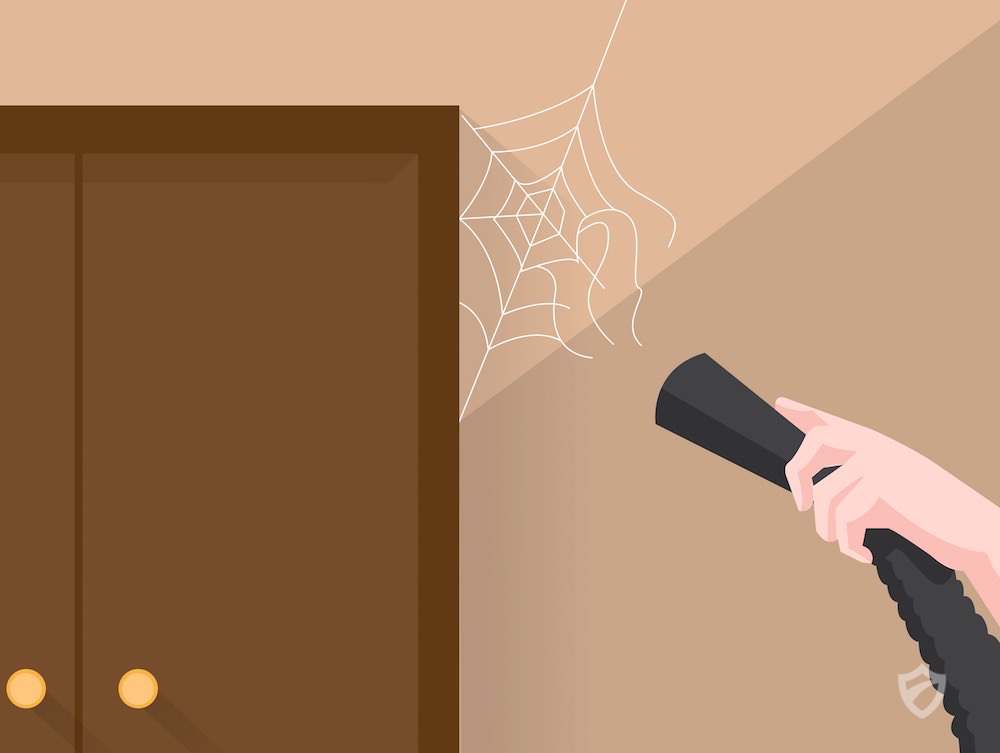
Now, you'll want to take steps to prevent entry. The easiest spider to deal with is the one that couldn't find a way into your house in the first place. Here are a few measures that will cut off their routes of ingress:
Wash all produce that you bring into your home. Banana spiders aren't just called that for fun – their egg sacs will occasionally survive through the produce transport chain and make it all the way to your kitchen counter. You don't want this.
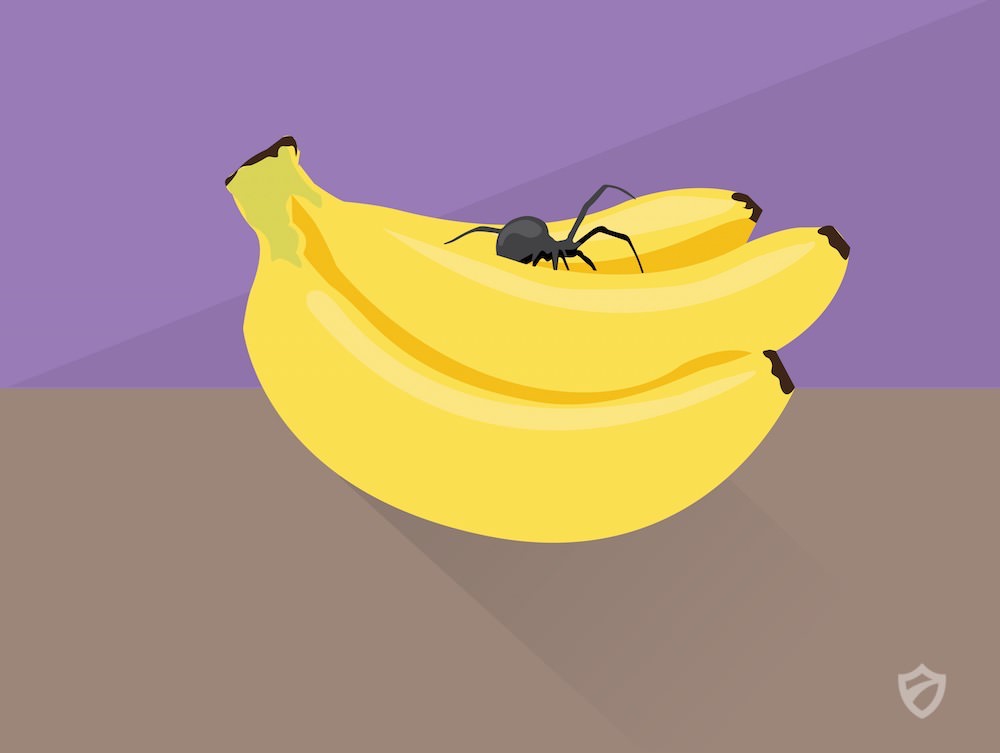
Don't pile mulch near your home's foundation. If possible, keep a distance from this type of landscaping and your home, because mulch can also attract termites and other pests. You also want to avoid stacking firewood too close to your house. Speaking of firewood, be sure to close your chimney's flue when you're not using it. Santa Claus isn't the only one that uses chimneys to get into homes.
Inspect possible access points and seal them accordingly. Look for cracks around your foundation, spaces around windows, and gaps around utility lines or pipes. Use caulk in small gaps, or expanding foam to seal off larger holes. Check carefully! You might be surprised how many hidden access points might be found around your home. (Old dryer vents are a common culprit; hidden behind appliances, they essentially serve as an open gateway for pests).
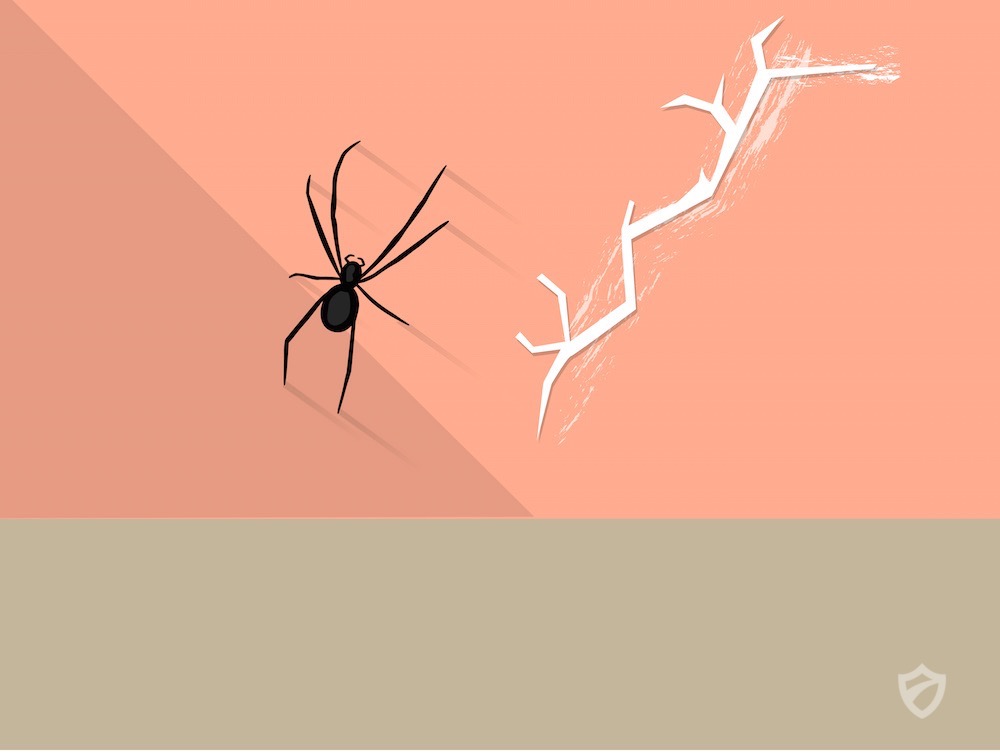
Finally, there are deterrents you can use to help repel or discourage spiders from setting up camp. A few natural oils and extracts have been reported as effective. Try peppermint oil, eucalyptus oil, or vinegar (or mix them to achieve the best aroma and consistency).
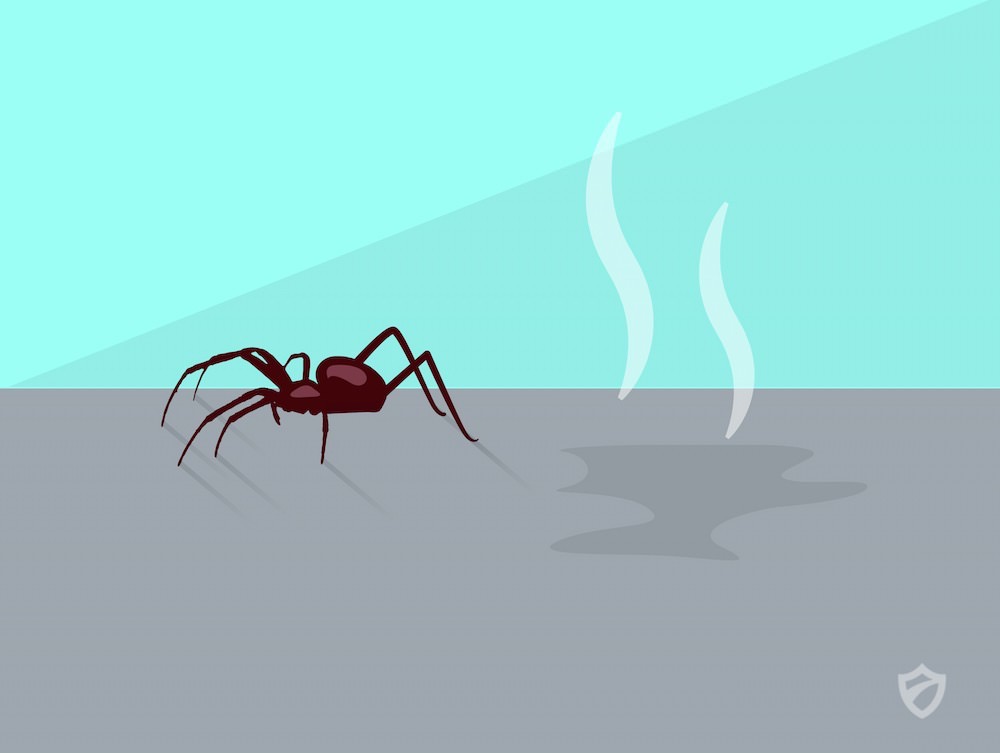
Spray the mixture on window sills and entryways. As a bonus, this mixture is also a good way to repel ants.
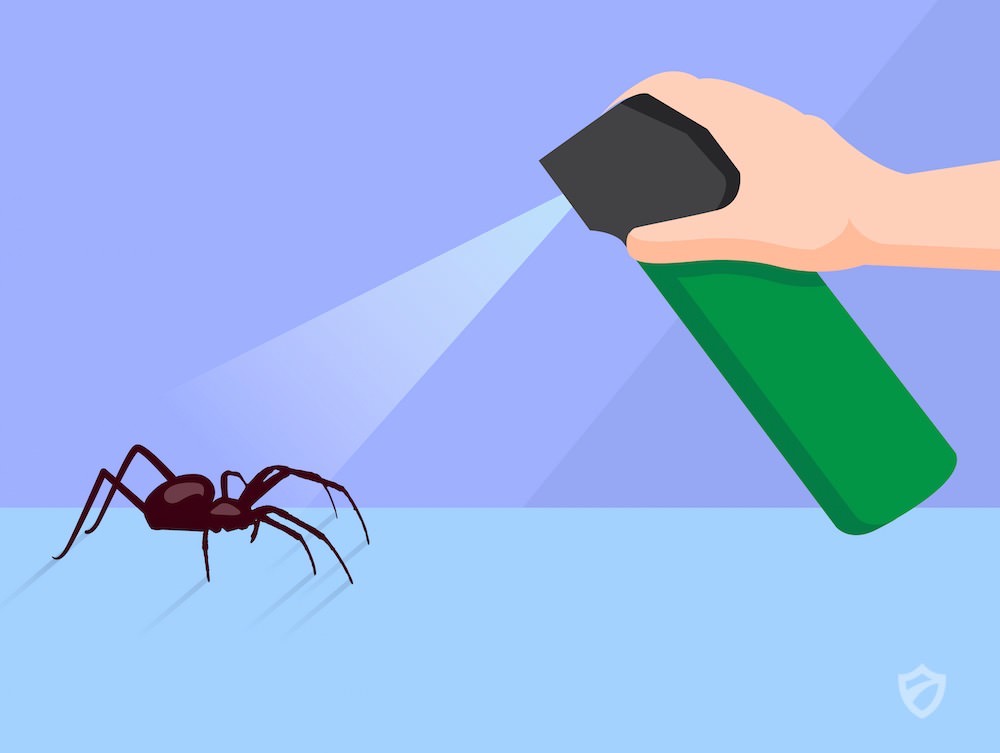
Diatomaceous earth is a go-to powder for killing or repelling insects, but it also works against spiders. Scatter the powder anywhere you might expect a spider to be, or spread it around the perimeter of your house. Use a food-grade DE powder and you can rest assured that it will be safe around children and pets.
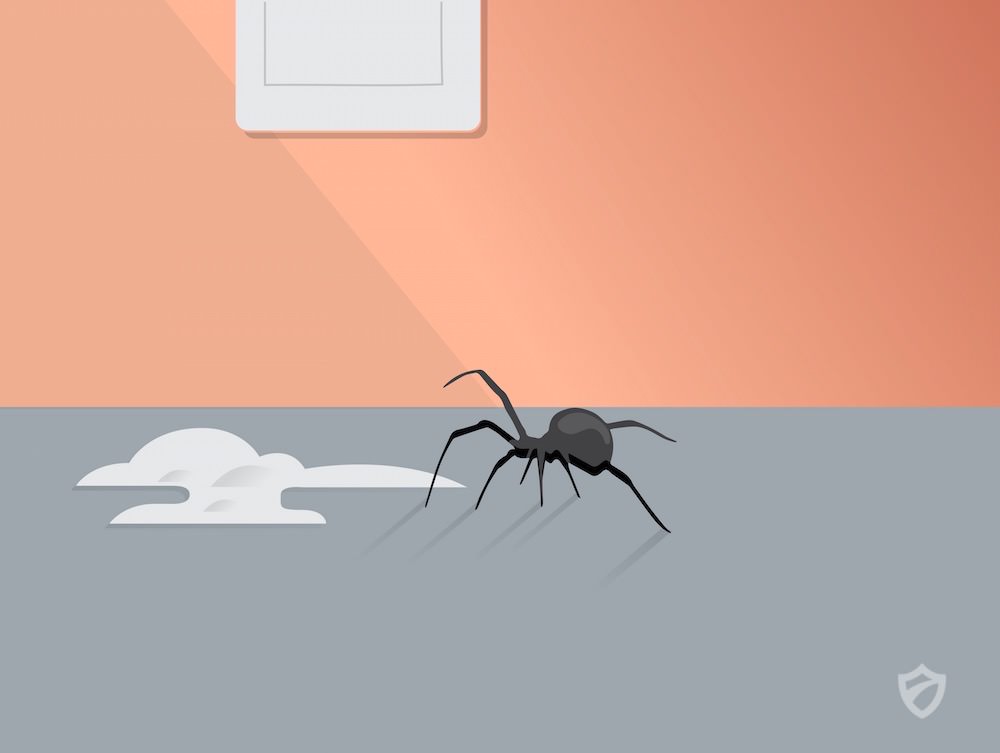
Placing glue traps in dark corners, behind water heaters, and under sinks won't repel spiders, but they can be a good way to cut their numbers without harsh chemicals.
Exterminating Spiders
If your spider incursion gets to the point where you have no other option but aggressive removal, there are a few choices to be made. First of all, decide if you will take matters into your own hands or call a professional exterminator.
DIY Spider Removal
Foggers are an option, and usually a good choice in confined areas like crawlspaces. Bear in mind that most foggers that are designed for insects are not going to work on spiders. Make sure to purchase a product that's made for your needs. Use a residual insecticide with pyrethroids. These chemicals include bifenthrin, cyfluthrin, permethrin, and tetramethrin and are used in most household insecticides. Spray the product on places where spiders might travel, as the chemical will only work if the spider crawls through the residue.
Professional Exterminator
Most exterminating companies offer less-harmful options these days. If you're concerned about the use of chemicals, or if you have children or pets, you may want to ask your exterminator about all of the different solutions that they offer.
Some insecticides used by professionals are so strong that you'll be required to vacate your home for several days.
Before taking extreme measures to eliminate spiders in or around your home, remember that most spiders are actually beneficial. With the exception of the venomous varieties (which aren't as common), spiders are harmless, prefer to stay hidden, and will even help keep other pests at bay. In fact, spiders are often referred to as the best pest you can have in your home! Sometimes, the best option is to pick up and move a spider from inside your home to your porch or yard. This way, the spider gets to keep eating bugs that would otherwise be in your home, and you're free from worrying about it crawling around your stuff.
It should be noted that a very large infestation of spiders might be a sign of a bigger problem. You won't experience a large population of spiders unless there's plenty of food around for them to eat!


